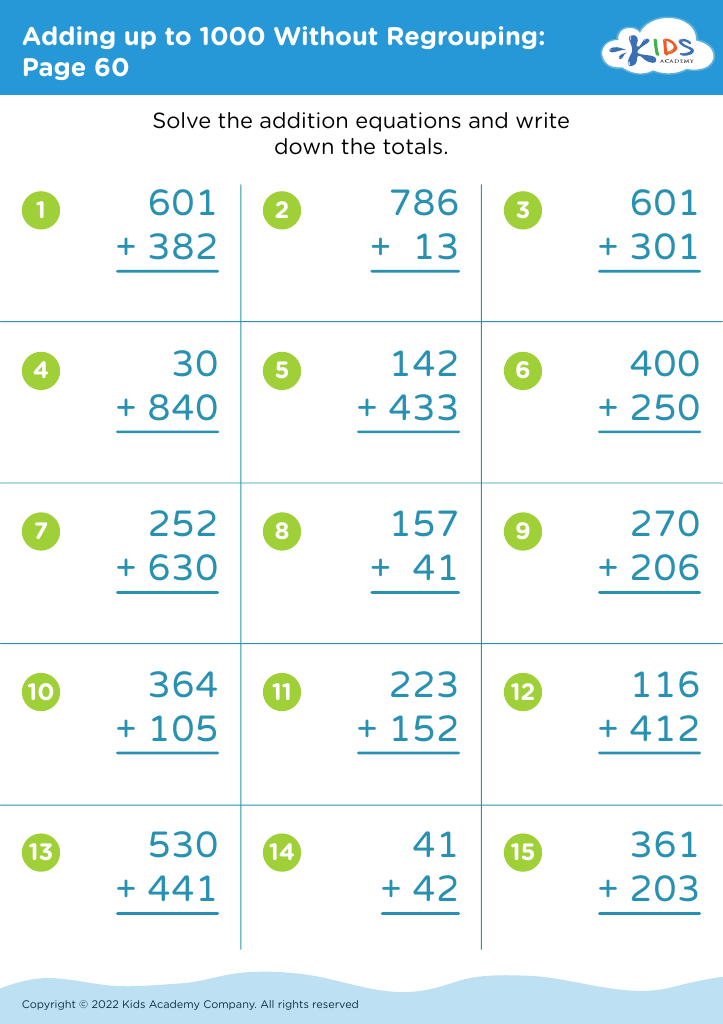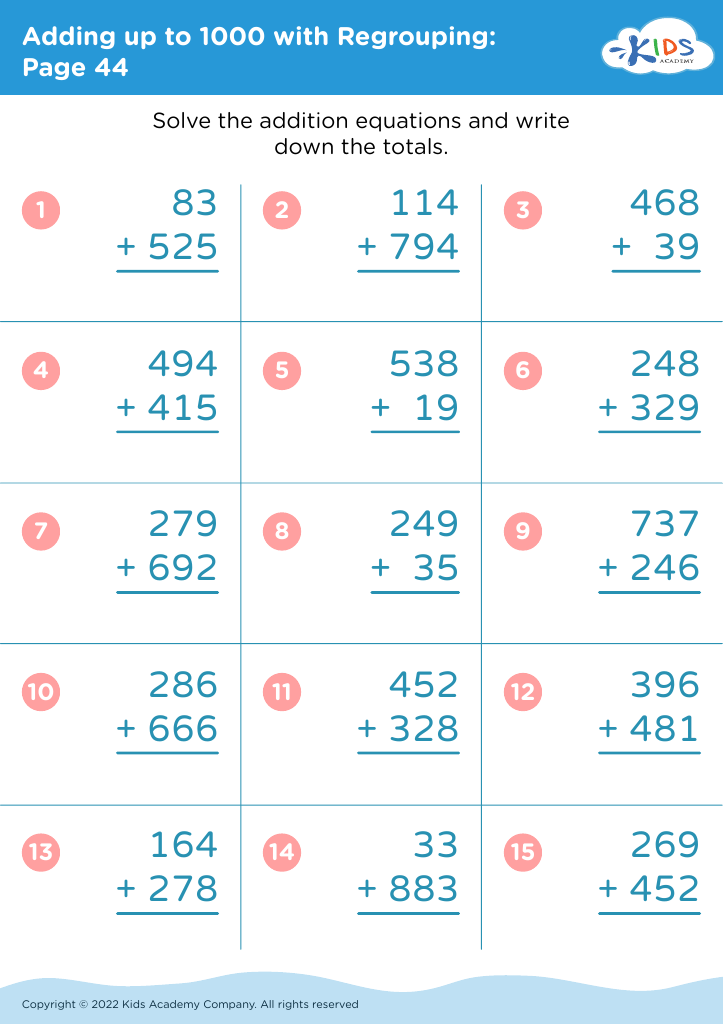Improve counting skills Adding up to 1000 Worksheets for Ages 5-7
9 filtered results
-
From - To
Boost your child's counting skills with our engaging "Adding Up to 1000 Worksheets," specially designed for ages 5-7! These interactive activities make learning fun while helping young learners master addition and number recognition. With a variety of colorful worksheets, kids will practice counting by ones, fives, and tens, reinforcing their math abilities. Each exercise is crafted to build confidence and encourage independent problem-solving. Additionally, our resource provides helpful tips and games to further enhance learning at home. Perfect for teachers and parents alike, these worksheets create a solid foundation for future success in math. Get started today!
Improving counting skills, particularly the ability to add up to 1,000, is crucial for children aged 5-7, as it lays the foundation for their mathematical understanding and problem-solving abilities. Mastering counting helps children develop number sense, which is essential for grasping more complex mathematical concepts later in their education.
Parents and teachers should prioritize these skills for several reasons. First, proficient counting serves as a gateway to basic arithmetic, empowering children to tackle addition and subtraction confidently. This confidence promotes a positive attitude toward mathematics, reducing anxiety that often accompanies the subject.
Moreover, counting skills enhance critical thinking and cognitive development. Children learn to recognize patterns and make connections between numbers, which are important for real-world applications, such as managing money or measuring distance. These practical skills foster independence and critical problem-solving ability.
Additionally, strong counting skills support collaboration and communication. Working together in group activities allows children to share ideas and strategies, reinforcing their learning.
By investing time in improving counting skills, parents and teachers equip children with essential tools for academic success and provide them with a solid foundation for lifelong learning. As a result, the development of these skills not only benefits the child but also enriches class dynamics and parent-child interactions.




















